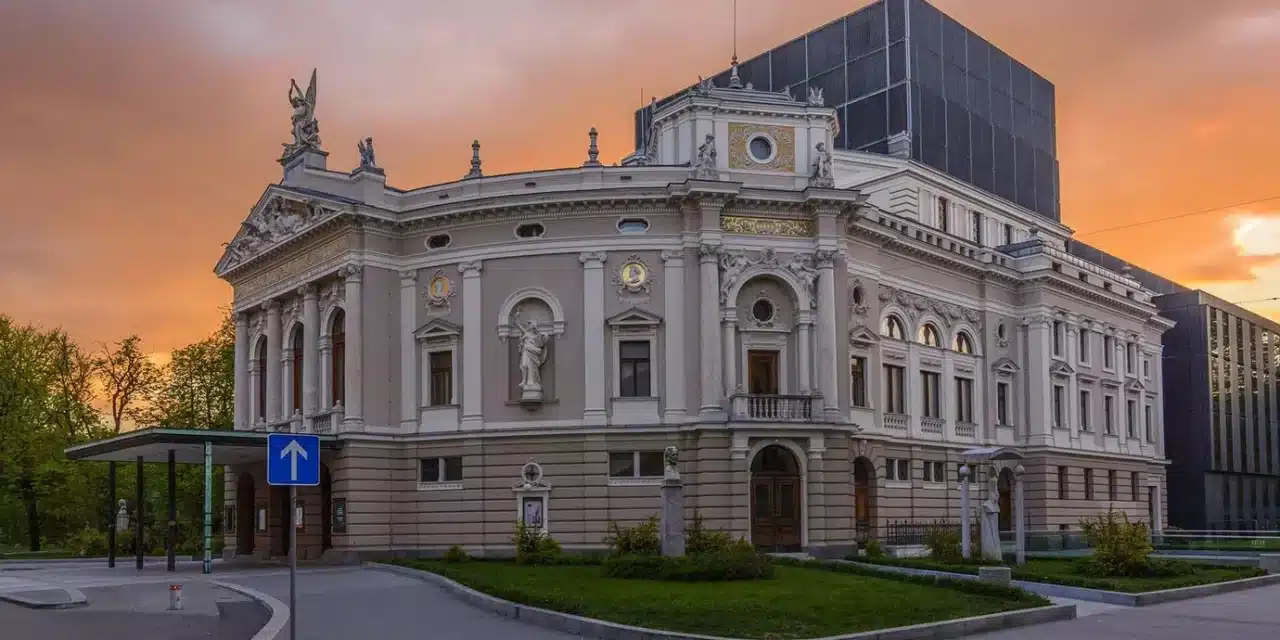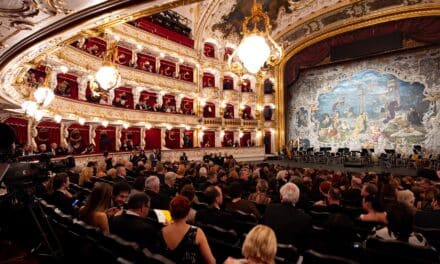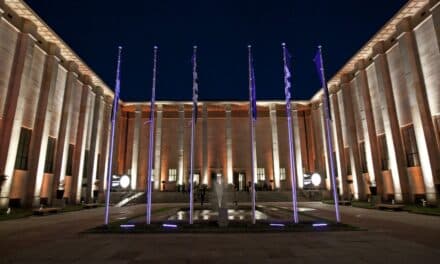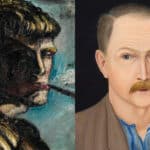The ensemble of the Slovenian National Theatre - Opera and Ballet Ljubljana celebrated 110 years of artistic creation in September 2002. The central Slovenian repertory music theater presents an extensive repertoire of opera, ballet and concert works of modern and classical music theater in addition to the regular program novelties of each season. Each season, around 150 subscription and non-subscription revivals are performed at the main theater as well as in guest performances at home and abroad.
Among his Russian contemporaries, Tchaikovsky was regarded as a "Westerner", which is why the advocates of artistic nationalism honored him with a special form of "love-hate". Europeans and Americans, on the other hand, saw him as a composer who succeeded in expressing the mysterious Russian soul almost perfectly in his music. Alongside Frédéric Chopin and Antonín Dvořák, Tchaikovsky was the first Slavic master to firmly establish himself in the Western musical canon.
Although Tchaikovsky dedicated a number of his works to the operatic stage, only the operas Eugene Onegin - the pinnacle of Russian Romantic opera - and Queen of Spades, both based on the literary material by Alexander Sergeyevich Pushkin, became famous worldwide. Despite the demanding and dramatic upheavals in his private life, he composed the opera Eugene Onegin relatively quickly; only a year passed between his initial enthusiasm for the material and the completion of the work. Tchaikovsky wrote to his patron, Mrs. von Meck, that Eugene Onegin would only satisfy those who "can be moved by ordinary, simple human feelings".
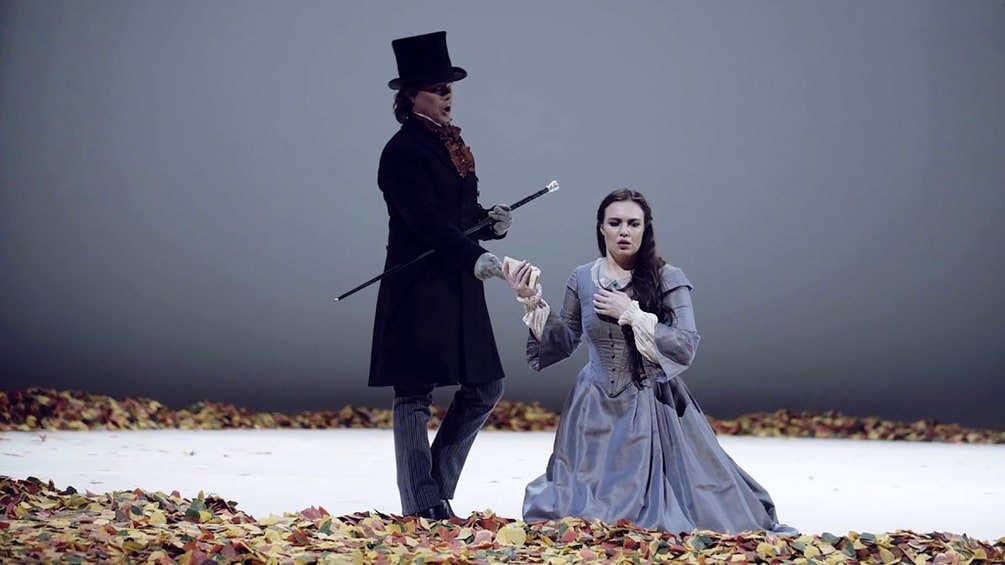
Eugene Onigin at the Teatro dell'Opera di Roma, 2020 © Teatro dell'Opera di Roma
The grandly conceived tragedy consists of a series of scenes in which the dramaturgical tension arises from the characters of the stage personalities rather than from the situations in which they find themselves. Such an approach was considered an unprecedented innovation in the formal sense in the second half of the 19th century. Eugene Onegin was first presented to the world public at the Maly Theater in Moscow in 1879.
Pushkin's poem touched the great composer, as his verses capture a multitude of different emotions, in particular the transformation of friendship into great love and of love into deep hatred and even death.
Premiere on May 25, 2023

